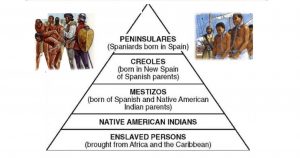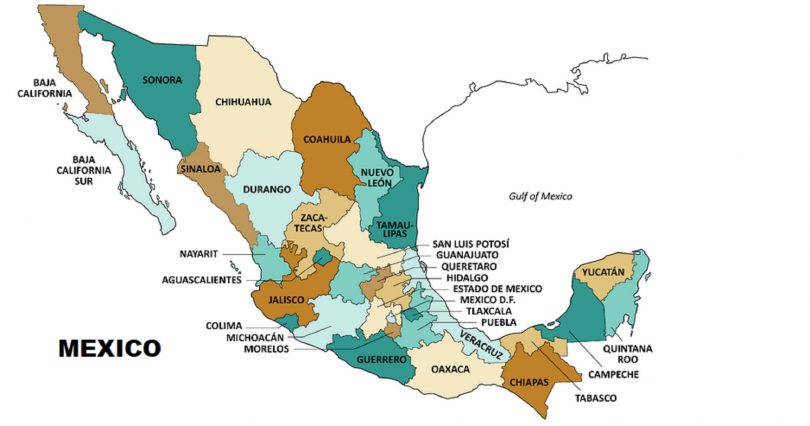Table of Contents
Do you have roots in Mexico and plan to detail your Mexican genealogy? Felicidades!
Mexico is one of the countries with a wealth of civil and church records to aid your historical or genealogical research.
Over 10% of the US population is Hispanic, meaning that chances of finding records of your origin and ancestry are high.
Mexican history stretches back to ancient times, and the archeology sites across the country are a testament to the civilization before, during, and after the Europeans’ arrival.
A complete Mexican genealogy research requires understanding the cultural and political shifts and pinpointing the exact location where Mexican ancestry records may be found.
This guide takes you through crucial Mexican history in genealogy and the necessary resources to create an informative and accurate Mexican family tree.
Besides, we’ll guide you on finding professional genealogists familiar with Mexican ancestry and a proven record of conducting and detailing everything you need about your heritage.
Key Takeaways
- Ancient Mexico had four social classes mainly promoted by the Spanish rule when Cortes conquered the native Aztecs in the 16th century.
- The Mexican population has since grown exponentially, but a majority find themselves in one of these four social classes.
- If you have Mexican heritage and are concerned about crossing the border for information, we can help you narrow down the options and quickly determine your ancestors and their origin.
Mexican Social Classes and Mexican Genealogy

Understanding the colonial class structure is key in Mexican genealogy
Ancient Mexico had four social classes mainly promoted by the Spanish rule when Cortes conquered the native Aztecs in the 16th century. Spanish Kings took over, renamed the territory “New Spain,” and established settlements.
The colony rapidly grew to cover some parts of the US, reigning to the first quarter of the 19th century when Mexico gained independence. Nonetheless, the affordable land attracted more Spanish settlers who soon blended into the social status. As a result, four distinct social classes emerged.
-
Peninsulares
The term Peninsulares refers to Spanish or Portuguese foreigners who relocated to Mexico. This was the ruling class in Mexico and was so protective of its status that members sent their pregnant women to Spain to give birth and retain Spanish social status by birth.
-
Criollos
The difference between the Peninsulares and the Criollos was that the latter consisted of people born in New Spain. However, they shared pure Spanish decency with the Peninsulares but had a lower social class because they were born in the colony. The unfair oppression caused Criollos to team up with other lower classes and rebel against colonial rule, which led to Mexico’s independence.
-
Mestizos
This social class comprised people with mixed blood between the Spanish and the indigenous people, making up most of the people in Mexico today.
-
Indigenas
As the name suggests, the Indigenas are the indigenous people who didn’t have Spanish blood or DNA. This was the lowest ranking group in Mexican social class and comprised of people with pure indigenous heritage and those with half-white, half-African ancestry, etc.
The Mexican population has since grown exponentially, but a majority find themselves in one of these four social classes. Therefore, you must find out what social group your ancestors belonged to whenever you start detailing your Mexican genealogy. The next thing would be to know the name of the town, city, or Municipio where the ancestors lived.
Mexico has 32 federal districts, locally called the Distrito Federal, comprised of Municipos just like counties in US states. So, identifying the exact municipal or district would help you quickly locate civil and church records stored locally.
How To Research Your Mexican Genealogy

Genealogy Research
It would be a hassle to commute to all the archives from Mexico City to Cancun looking for records regarding your grandparents who lived in the early 90s. Instead, a comprehensive genealogy would identify even closer relatives who would better guide your lineage in Mexico.
Tracking your Mexican ancestor involves detailing the full names of every person connected to you. The family tree has proven most effective in expanding your family details with you as the root.
Download free Mexican family tree samples and make family research a study and a fun activity in your living room. Every space in the family tree should include the person’s full name, special dates like birth and death, and other relevant information.
If you don’t have any reference material at your disposal, try websites and online databases for clues. Besides, you can visit the National Archives and General Registrar‘s office for all records from birth to census.
RELATED:
11 Mexico Genealogy Resources For Your Mexican Ancestry
Hire a Professional Genealogist for Mexican Genealogy

Starting from scratch
A genealogist specializes in the descents of persons and knows the checkmarks of finding a specific ancestor. Record Click Professional Genealogists will expedite the process of unearthing personal information and help you understand the historical contexts.
Only a professional genealogist can perfectly navigate the national library and quickly track your story. They also come in handy when you want to ensure you get everything right during the Mexican citizenship application by descent.
However, contacting your state’s consulate general office is advisable for directions on the application process, especially regarding descent, application fee, and duration. Your first step in the citizenship application process should start with visiting the state’s consulate with your genealogy information and records.
Viva Mexico!
If you have Mexican heritage and want to detail your genealogy, you don’t have to cross the border for information; we can help you narrow down the options and quickly determine your ancestors and their origin.
Contact us and share with genealogy experts about which project fits your needs.







